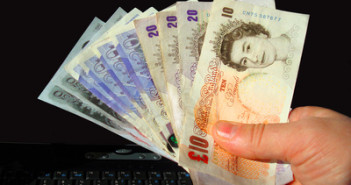One day before the thirteenth anniversary of September 11th, an American president was again addressing the nation to talk of terrorists aimed at destroying the United States and its allies. Markets reacted benignly as Mr. Obama declared he would ask for 475 additional troops in Iraq and more coordinated air strikes in Syria, in concert with Mid-East allies, to combat the new Islamic terror threat known as ISIS. Global markets either anticipated such action or for the moment, do not care, as equity indices were only slightly lower in Asia and Europe.
The key data point overnight came in the form of Australian jobs numbers, which surprised to the tune of +121k versus expectations of +15k, led by a surge in part-time jobs. The initial reaction caused the Aussie dollar to jump 1% before slowly coming back to original levels as even beating expectations tenfold aren’t enough to overpower the US dollar the moment. The New Zealand dollar experienced a marginal sell-off as the RBNZ signaled a rate pause amid lowering inflation forecasts, and the Japanese Yen made a new 2014 low following comments from the Bank of Japan. Governor Haruhiko Kuroda assured PM Shinzo Abe that the central bank would not shrink from further easing policy, helping the Nikkei rise as the lone index in positive territory.
In Europe it was the Pound that paced the markets, rising from the ashes on new Scotland news. The currency rose for a third straight day against the dollar after a Survation poll yesterday signaled a surge in support for Scottish nationalists had faltered. Economic data continues to support a recovery for the UK and it would appear rumors of the UK’s demise have been greatly exaggerated – for now. The euro is also stronger on Thursday despite comments from the ECB’s Noyer, expressing his desire for a weaker currency. Data was scant as German and French inflation numbers were on point, further helping the euro rise off 2014 lows and offer markets an overdue bounce.
In the US, Pound rose to +315k versus expectations of +301k, 11k more than last week. Markets were looking to this number as a key indicator ahead of next week’s Fed meeting. Wall Street’s finest are calling for a more hawkish tone and a potential clear signal to the central bank bringing up rates sooner than anticipated. The Federal Reserve begins their next two-day meeting on September 16th and although rates will go unchanged, markets seem to be expecting Ms. Yellen to strike up a more hawkish tone when she addresses the media. The greenback was especially strong against the CAD as Canadian housing data came in a touch below expectations and commodity prices continue to slide. Next week, markets get a peek at manufacturing and inflation data for Canada as it would appear the weakening trend that begin in early 2014 has returned to weigh on the Loonie, one month from hockey season. And I think we can all agree that any excuse to look ahead to hockey season, is a good one.
Further reading:
Markets Risk Aversion from Gold Triple Bottom?



